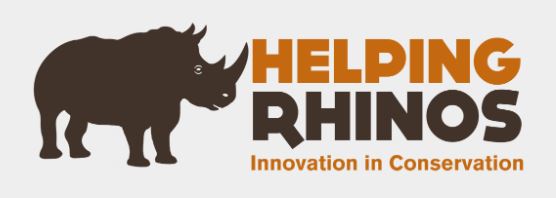THE POWER OF HELPING IS WITH NOXO.
We are adopting rhinos in South Africa.
The rhino population decreases every year. In Africa, two species live, while in Asia, there are three. In the last decade alone, 7,000 rhinos have been killed by poachers in Africa.
It is estimated that without swift support, rhinos could be decimated within the next 10 years. In the 19th century, millions of these animals roamed across Africa. Now, their population is estimated at just 25,000.
In the past, rhinos also lived in Europe.

We support the Zululand Rhino Orphanage in South Africa…
So when the opportunity came up to partner with a Foundation caring for baby rhinos deprived of their parents by poachers, we wanted to help as much as we could. And thus, as befits a NOXO with a rhino in the logo, early on we became a partner of the African cuties cuddled by the HELPING RHINOS Foundation of South Africa and adopted as many as 14 NOXO cuties living at the Zululand Rhino Orphanage. The foundation has been in existence for 10 years, and we have been involved with it – from a distance – and have been giving it good energy since we existed. We proudly support the Zululand orphanage financially.
Team NOXO. has adopted 14 toddlers...

Bhanoyi.
Species: White Rhino Gender: Male Birthday: August 2018
Bhanoyi was rescued in December 2018 after a brutal poaching attack on his mother. He was only four months old, yet bravely tried to defend her, resulting in him being struck four times with an axe. When the veterinary team found him and tried to help, the little one fled into the bushes. He was tracked down by a helicopter crew, which then transported him to the Zululand Rhino Orphanage.
The brave little one was named Bhanoyi, which means “helicopter” in the local language.
Mpilo.
Species: White Rhino Gender: Male Birthday: June 2017
Mpilo (his full name is Ncengimpilo) was rescued in April 2018 after his mother was killed by poachers. When found, he was exhausted, standing next to his mother’s body, desperately searching for milk.
The little one was taken to the specialized facilities at Zululand Rhino Orphanage. Initially confused, Mpilo regularly called out for his mother. Fortunately, he soon adapted to his new circumstances and began accepting food.
Ncengimpilo means “the one who fights for life” in Zulu, and his name was chosen by the local community near the orphanage.
Storm.
Species: Black Rhino | Gender: Male | Birthday: September 2017
Storm owes his name to the weather conditions on the day he was rescued. The rescue team battled wind and rain during a massive storm to transport the little orphaned rhino to the care center.
Storm had a rough start at the orphanage, struggling with multiple infections, and for a long time, it seemed he might not survive. However, thanks to the skills and dedication of his caretakers, Storm is now thriving.
Zimisele.
Species: White Rhino Gender: Female Birthday: August 2019
On January 14, 2020, the Zululand Orphanage received news that the mother of a 6-month-old white rhino had died. Zimisele’s mother likely sustained fatal injuries in a fight with another rhino or an elephant.
The orphanage team decided to name her Zimisele, which means “determination” in Zulu, a quality essential for surviving without parents.
Khula.
Species: White Rhino | Gender: Male | Birthday: October 2017
Khula was born in a private wildlife reserve. Unlike other orphans, Khula’s mother did not fall victim to poaching and is still alive. However, she was unable to produce milk to feed him.
After his first three days of life, Khula was so weak and thin that he required immediate help. A difficult decision was made to take him from his mother and transfer him to the Zululand Orphanage to save his life.
At the orphanage, he was named Khula, which means “to grow,” a wish from his caregivers. Successfully so, as today Khula weighs over 1,000 kg and enjoys freedom under the watchful eye of the orphanage staff.
Makhosi.
Species: White Rhino | Gender: Female | Birthday: Early 2017
Makhosi would not have survived in the wild without human help. Her mother was unable to feed her, and two days after her birth, her weight began to drop dramatically.
While veterinarians were busy setting up IVs and trying to stabilize the young rhino, the Zulu royal family approached. Queen Zwelethini named the rhino Makhosi, which means leader or member of the royal family in the Zulu language.
